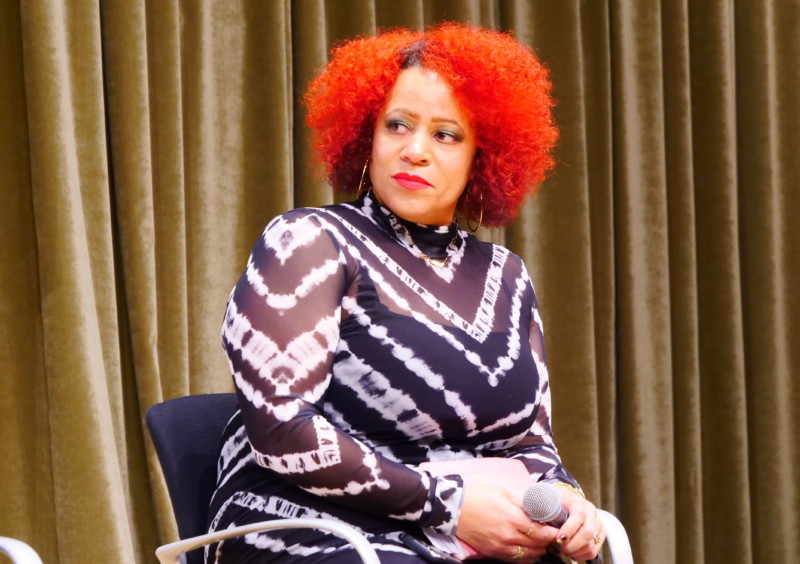Sign up for The Media Today, CJR’s daily newsletter.
On November 13, the Delacorte Center for Magazine Journalism hosted New York Times Magazine staff writer Nikole Hannah-Jones and New York Times Opinion columnist Jamelle Bouie for a discussion of the 1619 Project, the Times’ exploration of American slavery.
The discussion, moderated by Jelani Cobb, Ira A. Lipman Professor of Journalism at Columbia University, covered an array of topics, including the process of getting the project approved by Times Magazine editors, the likelihood and necessity of reparations, plans to release a 1619 Project bibliography, and the death of the word “woke.” Hannah-Jones also spoke of her efforts to fundraise money to distribute free copies of the 1619 Project issue to those who could not access it, and to make sure it was available for free online.
ICYMI: Securing a future for Latinx journalists
“The typical New York Times subscriber is white and wealthy,” she said. “I would never forgive myself if we produced a four-hundred-year examination of the legacy of slavery and those who have descended from slavery never see it or get access to it.”

Nikole Hannah-Jones. Photo by Akintunde Ahmad.
The project has served as a basis for academic curricula used by educators to teach students about American slavery, its origins, and its foundational role in American democracy. In that way, Hannah-Jones said, it addresses another problem: far too often, a portion of history is forgotten. We skip from ships arriving on American shores to emancipation to Martin Luther King’s “I Have a Dream” speech and ignore what happened in between.
The conversation closed with Cobb, Hannah-Jones, and Bouie discussing how the United States suffers by neglecting its history. “One of the qualities of the United States and Americans is this belief that you can imagine yourself anew in every generation and say ‘No, the past didn’t happen, it doesn’t matter for us, we can just move forward,’ ” Bouie said. “And I think there are ways in which that can be a strength, but it can also be a profound weakness and facilitate a lot of injustice.”
NEW: All our senior administration officials
Has America ever needed a media defender more than now? Help us by joining CJR today.



